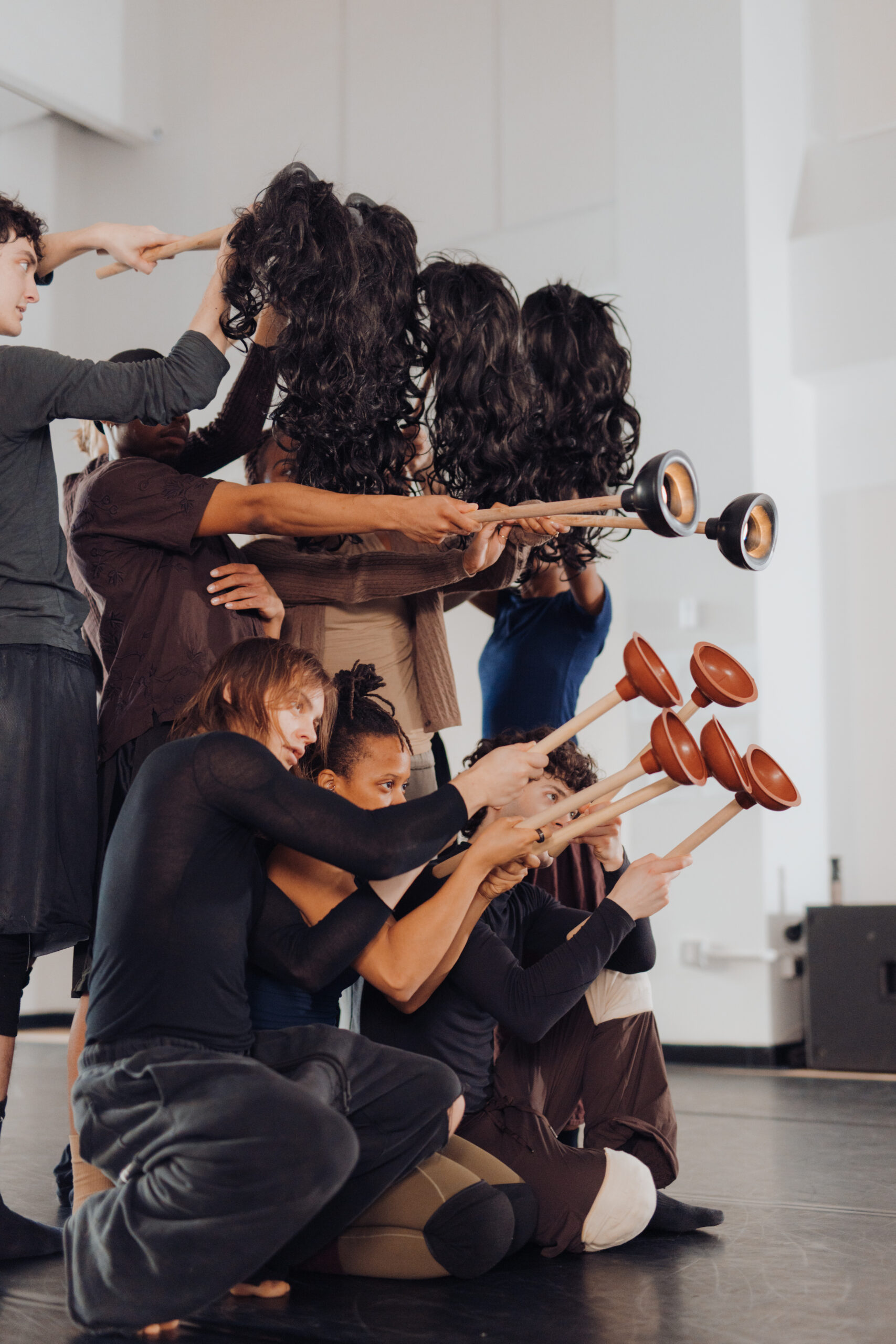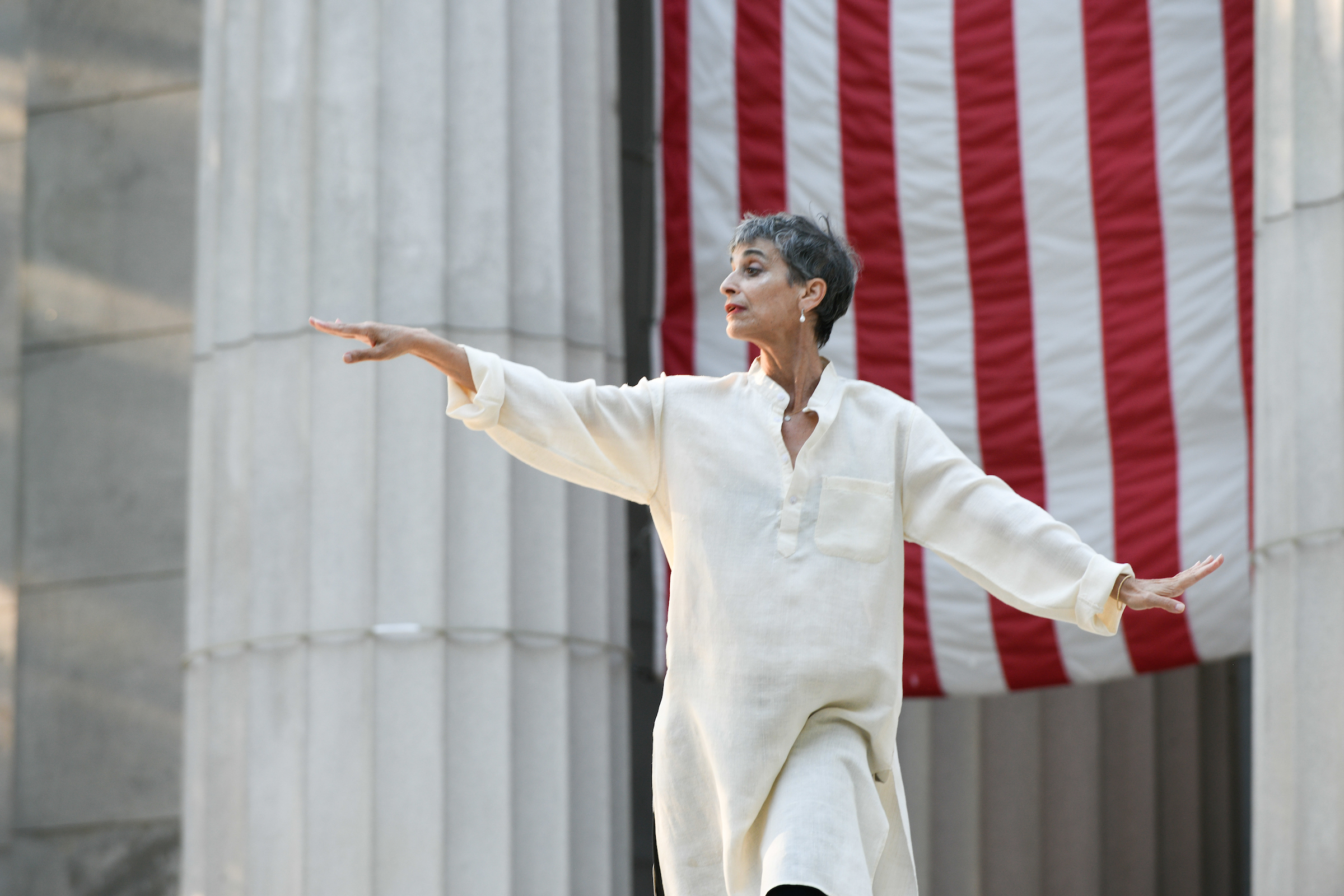Main Menu is a participatory, live performance on Zoom, produced by Obvious Agency, a performance group that creates interactive, experiential works. There are three ways an audience member could choose to experience the work: Solo Player, Quality Assurance Player, or Quality Assurance Audience. We each chose a different way of attending and have compiled our experiences in the joint review below.
Darcy as Solo Player:
I took part as an active participant in a one-on-one Zoom phone call. While “on hold” in the Zoom waiting room, the credits read “Main Menu Vanilla Performances.” I would call this production many things, but “vanilla” is not one of them.
My phone call was to Life Solutions, “the world’s only company dedicated to solving life’s problems.” The “computer-generated” customer service phone rep was Annie, played by Arianna Gass, but I had the option to rename her, so I chose Mildred (I later called her out when she slipped up, referring to herself as Annie, and she quickly self-corrected). She asked why I was calling, and my options were: sadness, boredom, lack of money, or just wanted to talk. I started with “sadness” but quickly moved on to the smorgasbord of menu items. Mildred asked me what I wanted to talk about and, given our current pandemic, I said, “healthcare.” She slowed her responses when she searched for a relevant answer. Her solution was pretty on-target, advising how down-ballot elections most impact people’s lives.
We moved on to a favorite topic of mine: food. Instead of talking about chocolate, our conversation focused on going to the grocery store during COVID-19. Next, I chose the “bored” prompt, and Mildred launched into a spiel about Life Solutions’ patented solution. It was obvious that Obvious Agency did its homework on each participant; Mildred, citing analytics, rattled off my place of employment, where I live, and my main hobby. It was a bit creepy, and I told Mildred it was Big Brother-ish.
Then Mildred informed me that she had to recalibrate. For me, this brought to mind the character Janet from TV’s “The Good Place.” Like Janet, my Mildred served as a sort of mainframe, a vast source of information. As if redirecting me back to my original prompt, Mildred offered a solution to sadness. Her script included a clever verbal captcha, mimicking an online experience.
Mildred launched into a monologue, as if offering up the moral of the story. The conclusion? “No more solutions.”
I was left feeling adrift, wanting a more personal response to match the rest of our interaction instead of a canned answer. But if art imitates life, this perfectly mirrored the frustration I feel when faced with the impersonal experience of an automated Main Menu.
Emilee as Quality Assurance Audience:
While in a Zoom waiting room, a voice announced that we were on a quality assurance call for the development of Life Solutions. “All calls may be monitored for quality and training purposes.” It was clear the makers had mined the call center experience for structure and content.
In my passive role as Quality Assurance Audience, a call was answered by Life Solutions’ automated IVR “Annie.” The player, another audience member, could say “goodbye” to end the call or “main menu” to return to the first choices. The player was given a list of problems to start and chose “sad” but quickly switched to the “bored” option. Even when the caller chose to go back to the main menu, Annie would remember his first choice, “sad.” This felt deliberate; in the end, no matter what the caller chose, the artists returned to sadness.
The performance itself was impressive. Gass, throughout the 30-minute piece, did not falter from a digital voice or the standard prompts and responses typical of an automated service. The sound design by Navi added to the authenticity of the call-in experience and at times made it sound as though it was in fact an AI bot and not a human performer.
At a certain point, Annie upgraded herself and the interactive player-driven part of the performance was ostensibly over. The IVR asked the caller for help, skipped and shorted out, and finally spinned into a monologue that questioned whether an AI entity could learn emotion. In the case of Main Menu, Annie discovered her own sorrow at the sadness of the world and fell apart. The existential meltdown of the automated service forced the active player out of control and into a passive role for the remainder of the performance.
There was plenty of room in this work for play, vulnerability, honest communication, and comedic errors. I only wish I could sit in on enough callers to see where patterns in the work lie and how the actor and audience handled the subject matter. There is beauty in knowing your experience is very singular.
Main Menu, Obvious Agency, Oct. 23 – Nov. 1






